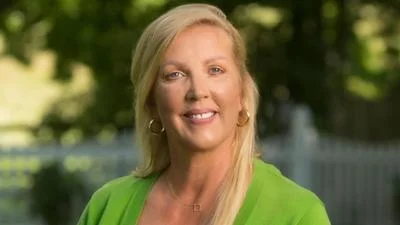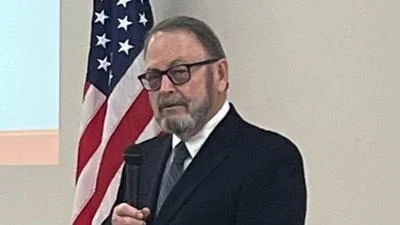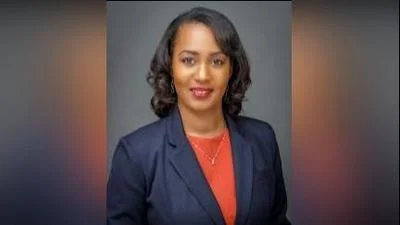Tony Sanders, State Superintendent of Education | School District U-46 / Facebook
Tony Sanders, State Superintendent of Education | School District U-46 / Facebook
Illinois State Board of Education, Education Policy Planning Committee of the Whole met Nov. 21.
Here are the minutes provided by the committee:
1. Roll Call
Chair Dr. Donna Leak brought the meeting to order at 9:40 a.m. Roll call was taken, and a quorum was present with seven members attending in person. State Superintendent Dr. Tony Sanders also was in attendance.
Members Present
Committee Chair Dr. Donna Leak
Dr. Steven Isoye
Dr. Christine Benson
Dr. Sherly Chavarria
Roger Eddy
Laura Gonzalez
Dr. Patricia Nugent
Members Absent
Dr. James Anderson
Dr. Anna Grassellino
Staff Present
Dr. Tony Sanders, State Superintendent
Jo Ireland, Board Services Coordinator
Kim Clarke, Executive Assistant to the State Superintendent
Isabel Schoeman, Special Assistant to the State Superintendent
Kristen Kennedy, Chief Legal Officer
Dr. Kimako Patterson, Chief of Staff
Dr. Matt Seaton, Chief Financial Officer
Tassi Maton, Chief Internal Audit Officer
Melissa Oller, Chief Operating Officer
Edobor Efam, Chief Information Officer
Dr. Jason Helfer, Chief Education Officer – Instruction (virtual)
Jennifer Saba, Chief Education Officer – Operations
Irma Snopek, Chief Policy & Communications Officer
Ann Whalen, Chief Advisor to Early Childhood Transition
Dr. Nikki Combs, Director of School/District Improvement
Dr. Tiffany Burnett, Executive Director of Safe & Healthy Climate
Joyce Gronewold, Executive Director of Specialized Instruction
Dr. Christine Paxson, Executive Director of Improvement & Innovation
Rae Clementz, Data, Accountability & Assessment
David Turovetz, Director of Charter Schools
Nick Heckel, Supervisor of School/District Improvement
Milton Leathers, Director of Accountability
Tom Bazan, Director of Budget & Financial Management
Dr. Ronda Dawson, Executive Director of Teaching & Learning
Dr. Nakia Douglas, Director of Special Education
Twyla Bennett, Assistant Director of Special Education
Emily Fox, Director of Educator Effectiveness (virtual)
Maureen Font, Director of Data Strategies and Analytics
2. Public Participation
There was no public participation.
Jo Ireland announced that any public participation comments may be submitted to bireland@isbe.net.
3. Approval of Minutes: Oct. 15, 2024
Dr. Benson moved that the Education Policy Planning Committee of the Whole hereby approves the Oct. 15, 2024, meeting minutes. Ms. Gonzalez seconded the motion, and it passed by a unanimous roll call vote.
4. Superintendent’s Consent Agenda – Nov. 21, 2024
There was no discussion about the consent agenda.
5. Upcoming December Board Action
A. Approval of Appointees to the State Educator Preparation and Licensure Board
Director of Educator Effectiveness Emily Fox discussed this item.
There were no questions from the Board.
B. Approval for Publication – Part 25 (Educator Licensure) Various Changes
Ms. Fox discussed this item.
Dr. Nugent asked for clarification on the specifics of what the rule means when it allows for separate scoring and retaking of each section of the content area knowledge exam. Ms. Fox answered that over the summer legislation was signed that allows ISBE to write rules to allow each test sub-area to be taken and scored independently, and currently, the structure of our testing is that each test contains sub-areas but only the combined score across all sub-areas determines whether an individual passes. She said that the implication of this is that individuals who do not pass must retake the whole exam even if they only did poorly on one section, so the rulemaking adds the language of test sub-area scores as applicable to any mention of test scores to enable ISBE to work with testing vendor Pearson to allow individuals to take and retake sub-areas of certain exams separately. She stated ISBE’s intention to begin applying this rule first to the elementary education test because previous legislation related to Illinois’ literacy plan sets forth criteria for the test to be redesigned to allow for a separate literacy sub score to be calculated. Dr. Nugent expressed concern that this is a step backward for ISBE because sub scores were allowed several years ago and individuals struggled to pass every section, leading ISBE to transition to using cumulative scores. Dr. Nugent asked if individual section scoring will now be required or solely an option. Ms. Fox replied that ISBE is able to decide on specific stipulations determining how scoring will work for each sub area, such as whether there is a certain floor for each subject area or whether sections can be weighed differently, but those specifics have yet to be decided and Dr. Nugent’s point will be taken into consideration. Dr. Nugent asked who will decide on these stipulations. Dr. Fox reaffirmed that many of these details have yet to be determined but she has a meeting scheduled in the coming weeks with several executive managers to begin these discussions. Dr. Nugent asked if educator preparation programs will have any input in the process outside of their representation on the State Educator Preparation and Licensure Board, and Ms. Fox said discussion of having an advisory committee has occurred. Dr. Sanders said the legislation originally required this separate scoring and ISBE negotiated to allow independent consideration of what tests could be scored by sub-area and how that process would occur, and he confirmed that there has been an abundance of feedback from the field in favor of this rulemaking.
Mr. Eddy asked for confirmation whether the intention behind this rulemaking is to attempt to address the shortage of teachers so that more individuals can obtain their license. Dr. Sanders answered that feedback given to ISBE has indicated that individuals have requested to only have to retake sections they did not pass and not the entire exam.
Mr. Eddy noted a small change in the language used pertaining to superintendent and principal endorsements from endorsements being required to endorsements allowing individuals to serve and asked if the word “allow” essentially means “require” in this context. Ms. Fox said there was previously conflicting language in the rule wherein one section used broader language to allow credentials beyond principal or superintendent endorsements to stand in for the endorsement. Mr. Eddy confirmed with Ms. Fox that this means individuals with type 75 certification would be able to forego the endorsement. Mr. Eddy then asked how this affects individuals with type 75 certification who were previously followed the rule using the required language. Ms. Fox clarified that this does not affect those individuals, as the effect of the rule is still the same but Part 25 previously neglected to mention those alternative credentials.
Ms. Gonzalez asked what the timeline for implementing the updated rules will be and whether the Board will be updated along the way. Ms. Fox estimated that the entire process will take until the summer of 2025, with the Board first voting to release the updated rules for public comment, the secretary of state then releasing the rules publicly for 45 days, ISBE reviewing and responding to all comments, and the Board voting to move forward with the updated rules. Ms. Fox said there then would be a second round of public comment and editing with the Joint Committee on Administrative Rules.
Chair Leak requested that Ms. Fox provide an outline of the timeline to the Board and that Dr. Sanders include that in the Board Weekly Update.
C. Approval of Charter Renewal Decision for Southland College Prep Charter High School Director of Charter Schools David Turovetz discussed this item and the next item.
Dr. Nugent confirmed that Southland College Prep Charter High School applied for a charter renewal of 10 years and asked if it can apply for a shorter term. Mr. Turovetz stated that the maximum term for a charter is 10 years but schools can apply for and be granted terms anywhere from one to 10 years, with five years being the norm.
D. Approval of Charter Renewal Decision for LEARN John & Kathy Schreiber Charter School
Mr. Eddy asked about which districts students for Southland and LEARN John & Kathy Schreiber Charter School are selected from, specifically whether they are selected from one or multiple districts. Mr. Turovetz answered that multiple districts feed into Southland. Rich Township High School District 227 is the high school district and there are multiple elementary districts. Chair Leak emphasized that Rich Township HSD 227 is the only high school district from which Southland draws its students, so the state is essentially authorizing a school to select from a single district. Mr. Turovetz affirmed this and asked for clarification on whether Mr. Eddy was asking about the high school district or the feeder elementary districts. Mr. Eddy said he aimed to address the funding problem that appears when charter schools draw from a single district, as this results in decreased enrollment, and enrollment numbers help to determine funding. Mr. Eddy noted that fixed expenses remain the same for schools no matter how many students they have enrolled so the loss of funding correlated with charter schools can be significant. Mr. Eddy then asked if a school receives a 10-year charter and within that window some kind of statutory change resulted from these funding considerations, would the charter school be required to alter its 10-year charter based on the statute or if they could finish their charter before making changes? Mr. Turovetz posited that the answer would depend on how the legislation is written. Mr. Eddy said that the answer to the question is an important consideration to factor in when deciding on the length of these charters. Mr. Eddy asked if Waukegan also draws students from a single district to its charter school and Mr. Turovetz confirmed that. Mr. Eddy clarified he is not anti choice but is encouraging deeper consideration funding implications for public schools when the state is authorizing charter schools. Mr. Eddy asked if there were 4,000 students in Rich Township HSD 227; Chair Leak said there were around 4,000 students in 2010. At the time, both local school boards expressed that they could not afford to have a charter school in their district, and the state overrode the local boards. Chair Leak expressed her belief that the state should be able to determine the selection boundaries for the schools whose charters they own. Mr. Eddy returned to his earlier point to say that a charter school with 400 students from a 4,000 student district draws away a significant portion of funding, and his experience as a superintendent showed him that funding reductions from student departures do not account for permanent fixed costs and that effect on remaining students must be considered. Dr. Benson said she concurs with Mr. Eddy’s comments as a former superintendent who has also seen the impact of charters on reducing funding for fixed costs in public schools.
Dr. Chavarria confirmed with Mr. Turovetz that the last two renewals for this school were for five years and now the request is for 10 years and asked what might ISBE consider in order to recommend a 10-year renewal over five years. Mr. Turovetz replied that the statute dictates that a term can go up to 10 years as long as the school is fully in compliance with all terms of contract and law but a term does not have to be that long. Dr. Chavarria asked if there is any information in the statute beyond that for why the state might authorize a 10-year term, and Mr. Turovetz confirmed there is not and specified there are no charters in the state of Illinois with 10-year terms currently.
Chair Leak asked how many state-authorized charter schools there are. Mr. Turovetz answered that there are nine existing charters for 10 campuses. Chair Leak then asked if every state-authorized charter school only draws its students from one district; Mr. Turovetz answered that Prairie Crossing Charter School draws from two districts. Chair Leak then asked if ISBE has researched the impact of state-authorized charter schools in districts in which the state overrode the advice of the local school board, and Mr. Turovetz said that ISBE has not and most of the schools have been opened for an extended period of time and were authorized multiple decades ago, which makes it more difficult to understand the impact. Mr. Eddy expected that this research might uncover an impact on local property taxpayers to make up the revenue difference.
Dr. Nugent recognized the success of the charter schools under consideration and wondered if districts would need to bring the success rate within their district public schools up to the rate of the charter schools. Mr. Eddy agreed but expressed caution in overlooking a number of factors that might influence charter success, including the ability to select better students. He emphasized his agreement that ISBE should try to help replicate best practices seen in charter schools and claimed that not enough research has been done since these charter schools’ founding to identify the keys to their success. Dr. Nugent referred to the statistics provided to the Board on LEARN Waukegan and identified a need for further research. She then asked how long it has been since the last piece of charter legislation, and Chair Leak answered that it has been since 1996. Chair Leak highlighted that the impetus of the charter legislation was to set up incubators of best practice and spread those practices across districts, but she has not seen that happen yet and sees a contradiction in the state overriding local boards to create charter schools and then failing to sufficiently fund public schools to accommodate for impact. She stated her belief that charter reform is a legislative issue.
Dr. Nugent pondered whether there is anything the Board can do to hold state-authorized charter schools accountable to share their best practices with local districts.
Mr. Turovetz clarified that state-authorized charter schools are required to hold blind lotteries for student selection if they receive more applications than seats.
Dr. Sanders stated that ISBE is currently operating under a system and funding mechanism established long before this Board began considering these and agreed that reform is ultimately a legislative problem. Dr. Nugent asked if the legislature is aware of the Board’s concerns, Dr. Sanders answered that he believes it does, as many districts with charter schools actively advocate to the legislature. But if it does not, he said, we can make sure they do and let our Legislative Affairs team know.
6. New Business: Items for the Next Agenda
Dr. Nugent requested more information on which districts are impacted by state-authorized charter schools as well as the number of students in each district and charter school. Dr. Sanders said he believes ISBE produces an annual report containing this data, which could be made available to the Board.
Mr. Eddy requested the statute or set of rules regarding the selection of students for state-authorized charter schools be provided to the Board. Dr. Nugent and Chair Leak wondered whether the Board would like to see the full statute. Dr. Sanders said the charter school team could put together a report or presentation for the Board and much of the information requested could be found on the ISBE website.
7. Next Meeting: Dec. 17, 2024
8. Adjourn
Ms. Gonzalez made a motion to adjourn. Mr. Eddy seconded the motion, and it passed by a unanimous roll call vote. Chair Leak adjourned the Education Policy Planning Committee of the Whole meeting at 10:23 a.m.
https://www.isbe.net/Documents_Board_Meetings/20241121-EPP-Minutes.pdf






 Alerts Sign-up
Alerts Sign-up